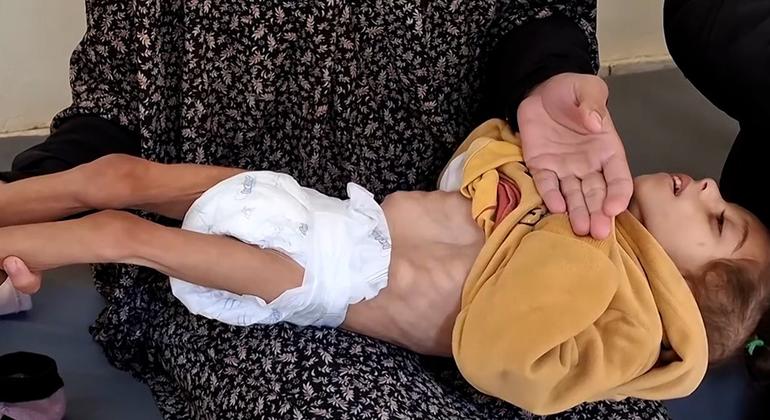Sure! Here’s the translation into American English:
—
The United Nations High Commissioner for Human Rights, Volker Türk, has described the sanctions imposed by the U.S. government on three major Palestinian human rights groups as “completely unacceptable.” These measures, announced by the U.S. State Department, impact organizations that support the International Criminal Court in its investigation of war crimes in Gaza. The NGOs involved are Al-Haq, the Palestinian Center for Human Rights, and the Al-Mezan Center, while prior sanctions had already been applied to the Addameer organization in June.
Türk emphasized the crucial role these organizations play in promoting human rights and accountability. In his view, these sanctions not only discourage civil society action in the Palestinian territories and Israel but also have global repercussions. He highlighted that, given the context of systematic violations of international humanitarian law and human rights norms in the region, the work of these NGOs is more vital than ever.
The High Commissioner warned that the sanctions could further entrench impunity and silence victims of abuses, facilitating the perpetuation of human rights violations and international crimes. He stressed that it is imperative for the U.S. government to lift all these sanctions, including those directed against the Special Rapporteur on Human Rights of Palestinians, as well as judges and prosecutors of the International Criminal Court.
Amid this context, the situation in Gaza is deteriorating. Tess Ingram, head of communications for UNICEF in the Middle East, described the city as a place of “fear, exodus, and funerals.” Approximately one million people remain trapped in Gaza, facing a collapse of basic services that threatens the lives of the most vulnerable. The UN confirmed the presence of famine in the region, officially recognized on August 22.
Additionally, the UN Office for the Coordination of Humanitarian Affairs (OCHA) reported that Israeli forces attacked a skyscraper in Gaza that allegedly housed military operations, also affecting displaced persons’ camps. The population in northern Gaza is trapped; the displacement camps are overcrowded, and the costs of moving south are exorbitant.
OCHA has condemned the severe restrictions imposed by Israeli authorities on the movement of humanitarian personnel, further complicating the situation. Despite these obstacles, the UN has managed to send some basic supplies and repair essential infrastructure. However, humanitarian workers continue to demand broader and safer access to address the growing crisis of hunger and malnutrition in Gaza.
In the West Bank, OCHA reported that more than 2,780 Palestinians have been injured this year due to actions by Israeli forces or settlers, a 39% increase compared to the same period last year. Additionally, over 1,150 structures have been demolished for lacking building permits.
More than 40 human rights experts have urged the UN General Assembly to act in response to the grave situation in Gaza, emphasizing that the silence and inaction of the international community are not viable options. The demand is clear: a decisive response is required to prevent a greater catastrophe and ensure the protection of the civilian population.
via: MiMub in Spanish










